Энтони Хоуп - Английский язык с Энтони Хоупом. Узник Зенды / Anthony Hope. The Prisoner Of Zenda
- Название:Английский язык с Энтони Хоупом. Узник Зенды / Anthony Hope. The Prisoner Of Zenda
- Автор:
- Жанр:
- Издательство:Литагент «Восточная книга»1243df63-7956-11e4-82c4-002590591ed2
- Год:2009
- Город:Москва
- ISBN:978-5-478-01181-9
- Рейтинг:
- Избранное:Добавить в избранное
-
Отзывы:
-
Ваша оценка:
Энтони Хоуп - Английский язык с Энтони Хоупом. Узник Зенды / Anthony Hope. The Prisoner Of Zenda краткое содержание
В книге предлагается роман Энтони Хоупа «Узник Зенды», адаптированный (без упрощения текста оригинала) по методу Ильи Франка. Уникальность метода заключается в том, что запоминание слов и выражений происходит за счет их повторяемости, без заучивания и необходимости использовать словарь.
Пособие способствует эффективному освоению языка, может служить дополнением к учебной программе. Предназначено для студентов, для изучающих английский язык самостоятельно, а также для всех интересующихся английской культурой.
Английский язык с Энтони Хоупом. Узник Зенды / Anthony Hope. The Prisoner Of Zenda - читать онлайн бесплатно ознакомительный отрывок
Интервал:
Закладка:
I opened it and read it aloud:
“If the King desires to know what it deeply concerns the King to know, let him do as this letter bids him. At the end of the New Avenue there stands a house in large grounds. The house has a portico, with a statue of a nymph on it. A wall encloses the garden; there is a gate in the wall at the back. At twelve o’clock tonight, if the King enters alone by that gate, turns to the right, and walks twenty yards, he will find a summer-house, approached by a flight of six steps. If he mounts and enters, he will find someone who will tell him what touches most dearly his life and his throne. This is written by a faithful friend. He must be alone. If he neglects the invitation his life will be in danger. Let him show this to no one, or he will ruin a woman who loves him: Black Michael does not pardon.”
“No,” observed Sapt, as I ended, “but he can dictate a very pretty letter (нет, – заметил Сэпт, когда я закончил, – но он все же умеет диктовать весьма занимательные письма).”
I had arrived at the same conclusion (я пришел к такому же выводу), and was about to throw the letter away (и уже собирался выбросить письмо), when I saw there was more writing on the other side (когда заметил, что на другой стороне тоже что-то написано).
“Hallo! there’s some more (эй! да тут еще).”
“If you hesitate,” the writer continued, “consult Colonel Sapt (если вы сомневаетесь, – продолжал автор письма, – посоветуйтесь с полковником Сэптом; writer – писатель; автор / статьи, письма /) – ”
“Eh,” exclaimed that gentleman, genuinely astonished (а? – воскликнул Сэпт: «тот джентльмен», искренне удивившись). “Does she take me for a greater fool than you (она принимает меня за еще большего дурака, чем вас)?”
I waved to him to be silent (я махнул ему, чтоб помолчал).
“Ask him what woman would do most (спросите его, какая женщина сделала бы все возможное) to prevent the duke from marrying his cousin (чтобы помешать герцогу жениться на своей кузине), and therefore most to prevent him becoming king (и, следовательно, помешать ему стать королем)? And ask if her name begins with – A (и спросите, не начинается ли ее имя с буквы «А»)?”
I sprang to my feet (я вскочил на ноги; to spring – прыгать, вскакивать ). Sapt laid down his pipe (Сэпт положил свою трубку).
“Antoinette de Mauban, by heaven!” I cried (Антуанетта де Мобан, ей-богу, – вскричал я).
“How do you know?” asked Sapt (откуда вы знаете? – спросил Сэпт).
I told him what I knew of the lady, and how I knew it (я рассказал ему /все/, что знал об этой даме, и как я узнал это). He nodded (он кивнул).
“It’s so far true that she’s had a great row with Michael,” said he, thoughtfully (вообще-то, это правда, что она здорово поссорилась с Михаэлем, – сказал он задумчиво; so far – до сих пор; до определенной степени; to have a row with smb. – поскандалить, поругаться с кем-л. ).

“No,” observed Sapt, as I ended, “but he can dictate a very pretty letter.”
I had arrived at the same conclusion, and was about to throw the letter away, when I saw there was more writing on the other side.
“Hallo! there’s some more.”
“If you hesitate,” the writer continued, “consult Colonel Sapt – ”
“Eh,” exclaimed that gentleman, genuinely astonished. “Does she take me for a greater fool than you?”
I waved to him to be silent.
“Ask him what woman would do most to prevent the duke from marrying his cousin, and therefore most to prevent him becoming king? And ask if her name begins with – A?”
I sprang to my feet. Sapt laid down his pipe.
“Antoinette de Mauban, by heaven!” I cried.
“How do you know?” asked Sapt.
I told him what I knew of the lady, and how I knew it. He nodded.
“It’s so far true that she’s had a great row with Michael,” said he, thoughtfully.
“If she would, she could be useful (если это так, то она могла бы быть полезной),” I said.
“I believe, though, that Michael wrote that letter (и все же, я думаю, что Михаэль написал это письмо).”
“So do I, but I mean to know for certain (я тоже, но я намерен узнать наверняка). I shall go, Sapt (я пойду, Сэпт).”
“No, I shall go (нет, я пойду),” said he.
“You may go as far as the gate (вы можете пойти не дальше калитки).”
“I shall go to the summer-house (я пойду в этот летний домик).”
“I’m hanged if you shall (провалиться мне на этом месте, если вы пойдете)!”
I rose and leant my back against the mantelpiece (я встал и прислонился спиной к каминной доске).
“Sapt, I believe in that woman, and I shall go (Сэпт, я доверяю этой женщине, и я пойду).”
“I don’t believe in any woman,” said Sapt, “and you shan’t go (я не доверяю ни одной женщине, – сказал он, – и вы не пойдете).”
“I either go to the summer-house or back to England (либо я иду в летний домик, либо возвращаюсь в Англию),” said I.
Sapt began to know exactly how far he could lead or drive (Сэпт начал ясно понимать, как долго он может приказывать; far – далеко; to lead – вести, показывать путь; руководить, управлять; to drive – гнать; управлять ), and when he must follow (а когда должен подчиняться; to follow – следовать за / кем-л., чем-л. /).
“We’re playing against time,” I added (время играет против нас: «мы играем против времени», – добавил я). “Every day we leave the King where he is there is fresh risk (каждый день, не делая попыток спасти короля: «оставляя короля там, где он находится», мы идем на новый риск: «существует новый риск»; fresh – свежий; новый, другой ). Every day I masquerade like this, there is fresh risk (каждый день, /когда/ я притворяюсь, как сейчас, мы идем на новый риск; to masquerade – участвовать в маскараде; притворяться, выдавать себя за кого-л. ). Sapt, we must play high; we must force the game (Сэпт, мы должны сделать крупную ставку, мы должны форсировать игру; to play high – играть по-крупному; to force – заставлять, принуждать; ускорять, форсировать ).”

“If she would, she could be useful,” I said.
“I believe, though, that Michael wrote that letter.”
“So do I, but I mean to know for certain. I shall go, Sapt.”
“No, I shall go,” said he.
“You may go as far as the gate.”
“I shall go to the summer-house.”
“I’m hanged if you shall!”
I rose and leant my back against the mantelpiece.
“Sapt, I believe in that woman, and I shall go.”
“I don’t believe in any woman,” said Sapt, “and you shan’t go.”
“I either go to the summer-house or back to England,” said I.
Sapt began to know exactly how far he could lead or drive, and when he must follow.
“We’re playing against time,” I added. “Every day we leave the King where he is there is fresh risk. Every day I masquerade like this, there is fresh risk. Sapt, we must play high; we must force the game.”
“So be it,” he said, with a sigh (пусть будет так, – сказал он со вздохом).
To cut the story short, at half past eleven that night Sapt and I mounted our horses (короче говоря, той же ночью в половине двенадцатого мы с Сэптом сели на коней; to cut short – прерывать, обрывать; сокращать / по времени / ; story – повесть, рассказ ). Fritz was again left on guard (Фрица снова оставили на страже), our destination not being revealed to him (не открывая ему цели нашей /поездки/; destination – место назначения, цель ). It was a very dark night (ночь была очень темной). I wore no sword, but I carried a revolver (меч я оставил: «я не носил меча», но имел при себе револьвер; to carry – нести; иметь при себе ), a long knife, and a bull’s-eye lantern (длинный нож и сигнальный фонарь; bull’s eye – «бычий глаз» / фонарь, в абажур которого вставлены стекла /). We arrived outside the gate (мы подъехали к калитке; outside – наружная сторона ). I dismounted (я слез с коня). Sapt held out his hand (Сэпт протянул руку).
“I shall wait here,” he said. “If I hear a shot, I’ll (я буду ждать здесь, – сказал он, – если услышу выстрел, я) – ”
“Stay where you are; it’s the King’s only chance (оставайтесь на месте: «где вы есть»; это единственный шанс для короля). You mustn’t come to grief too (вы не должны тоже попасть в ловушку; to come to grief – попасть в беду ).”
“You’re right, lad (ты прав, парень). Good luck (удачи)!”
I pressed the little gate (я толкнул маленькую калитку; to press – нажимать, надавливать ). It yielded, and I found myself in a wild sort of shrubbery (она подалась, и я оказался в каких-то буйно /разросшихся/ кустах; to yield – приносить, давать / плоды, урожай / ; уступать, сдавать / позицию / ; sort of – как бы, вроде ). There was a grass-grown path and, turning to the right (там оказалась заросшая травой тропка, и, повернув направо) as I had been bidden, I followed it cautiously (как мне было указано, я осторожно двинулся по ней). My lantern was closed, the revolver was in my hand (мой фонарь был закрыт, револьвер /я держал/ в руке). I heard not a sound (я не слышал ни звука = стояла полная тишина). Presently a large dark object loomed out of the gloom ahead of me (вскоре впереди из мрака выступило что-то большое и темное; object – предмет, объект; to loom out – вырисовываться ). It was the summer-house (это был летний домик).
Читать дальшеИнтервал:
Закладка:
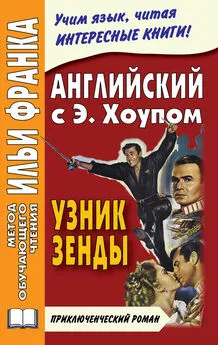
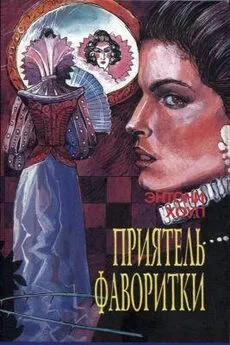
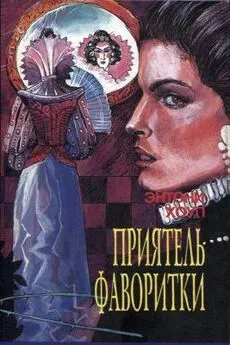
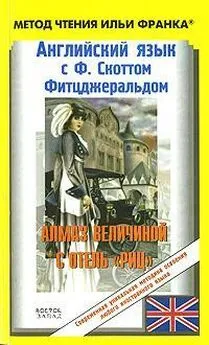
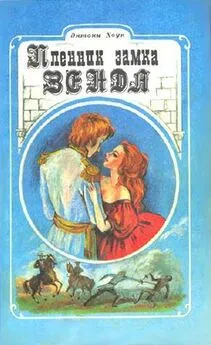
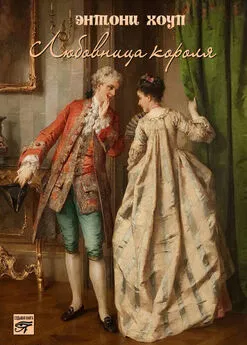
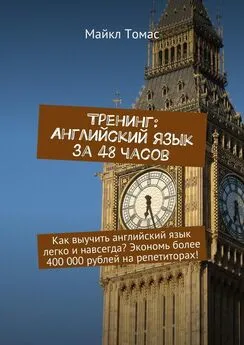
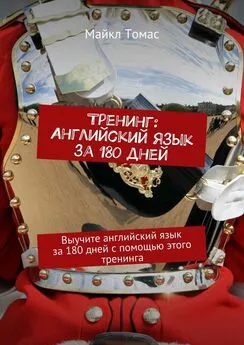
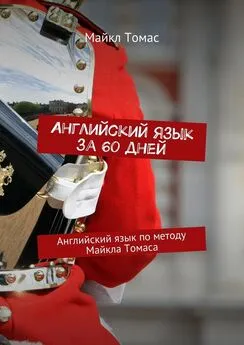
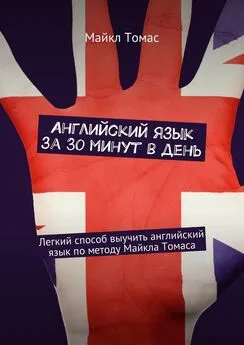
![Энтони Хоуп - Пленник Зенды. Месть Руперта [сборник]](/books/1090466/entoni-houp-plennik-zendy-mest-ruperta-sbornik.webp)